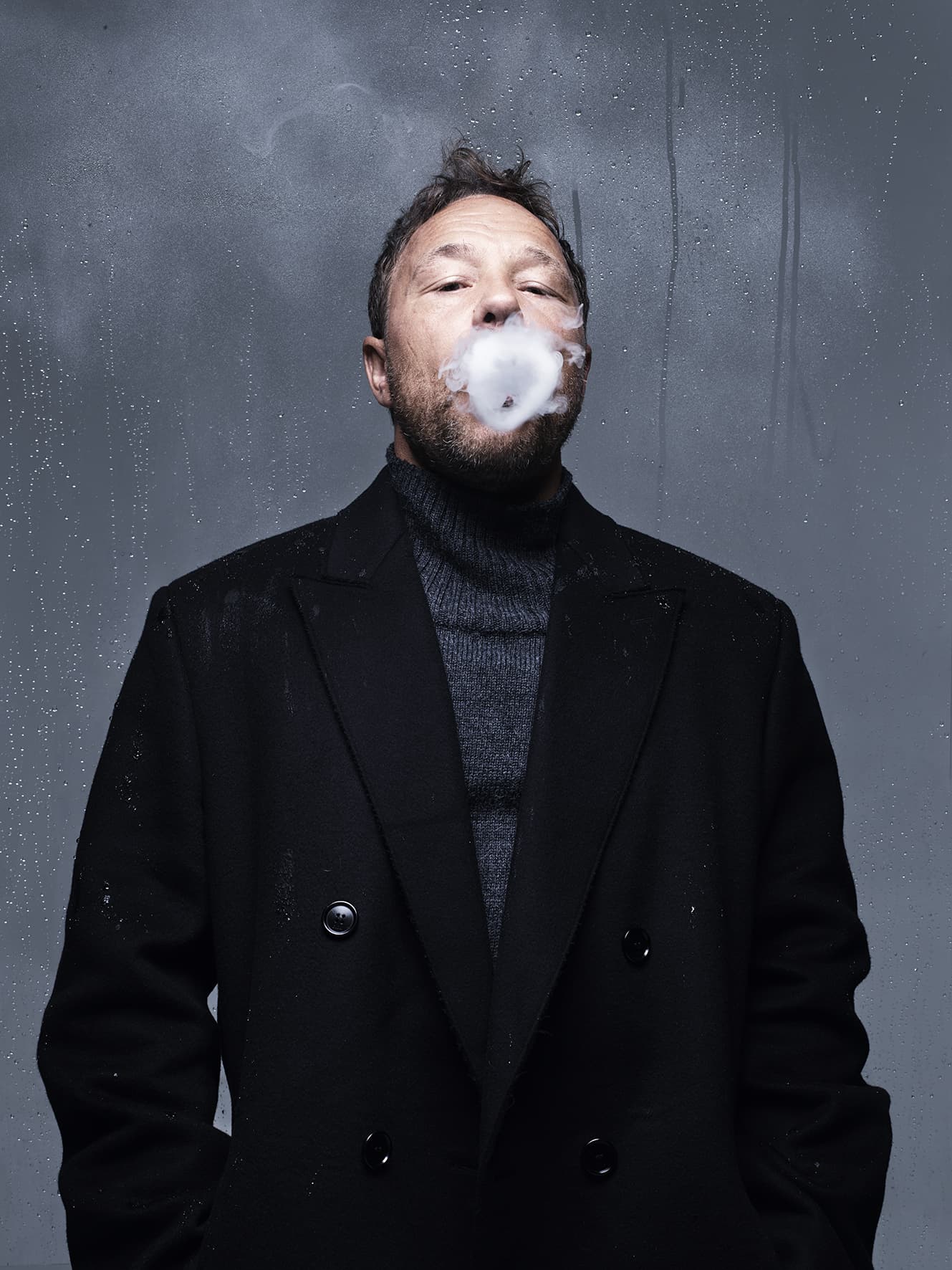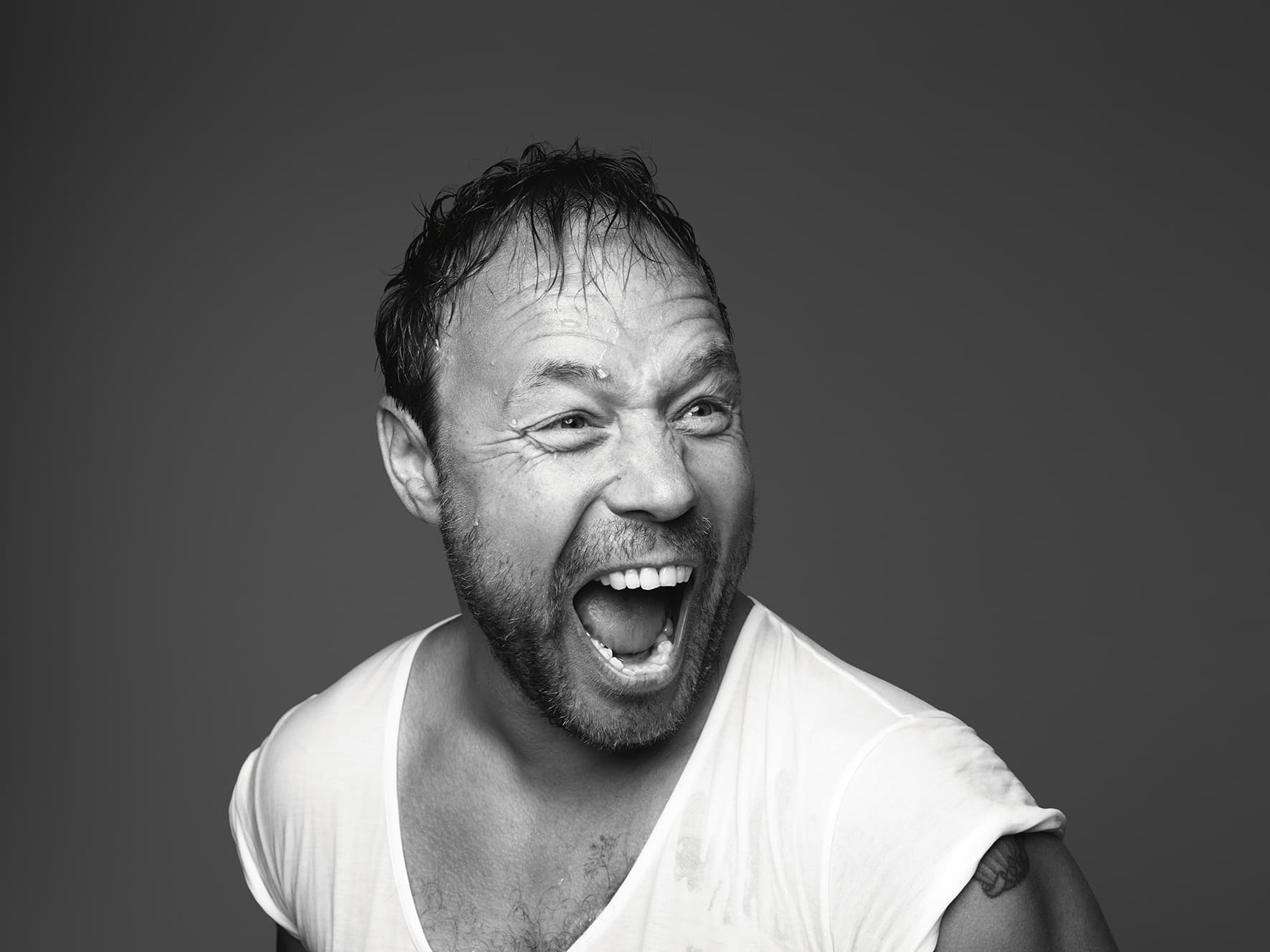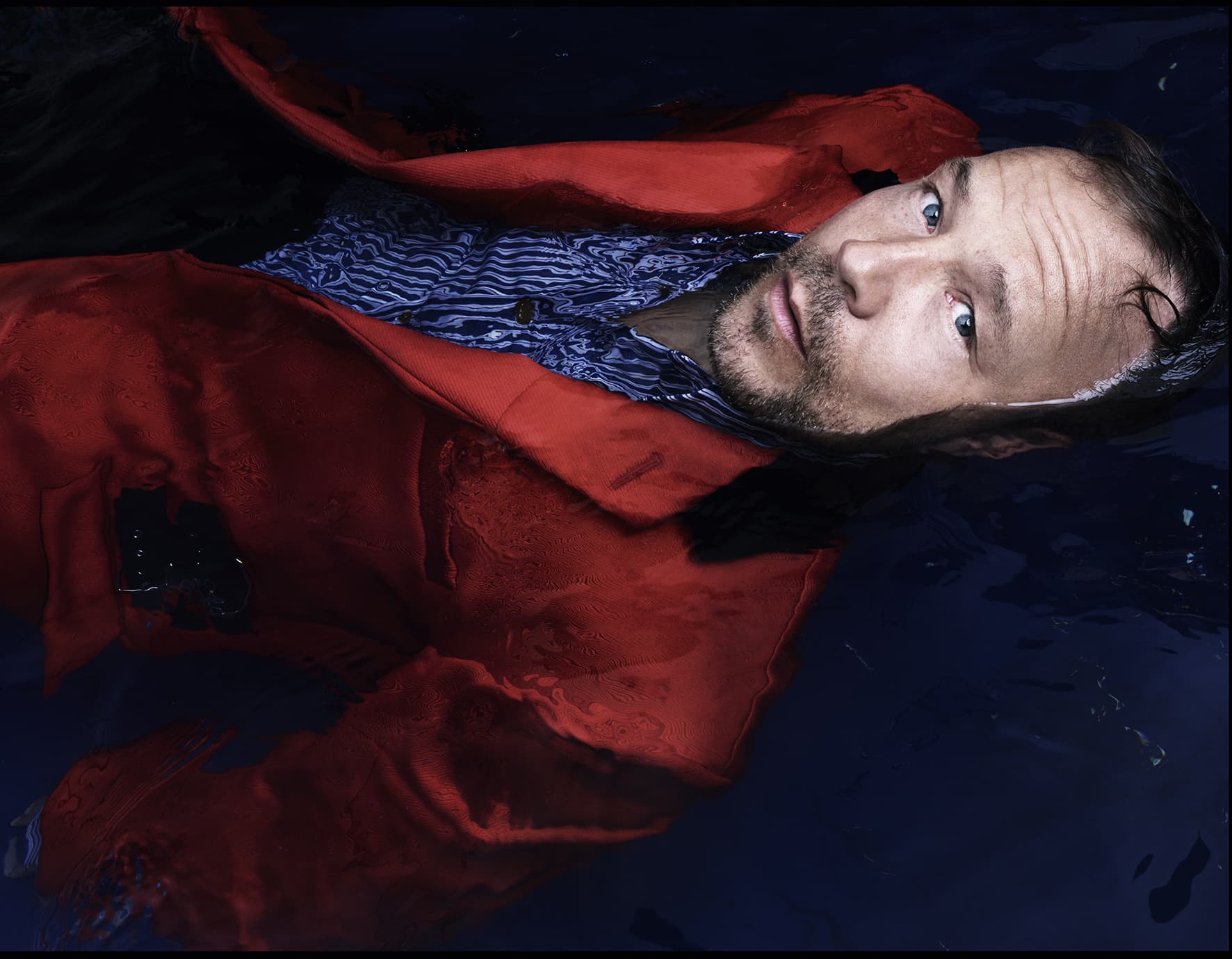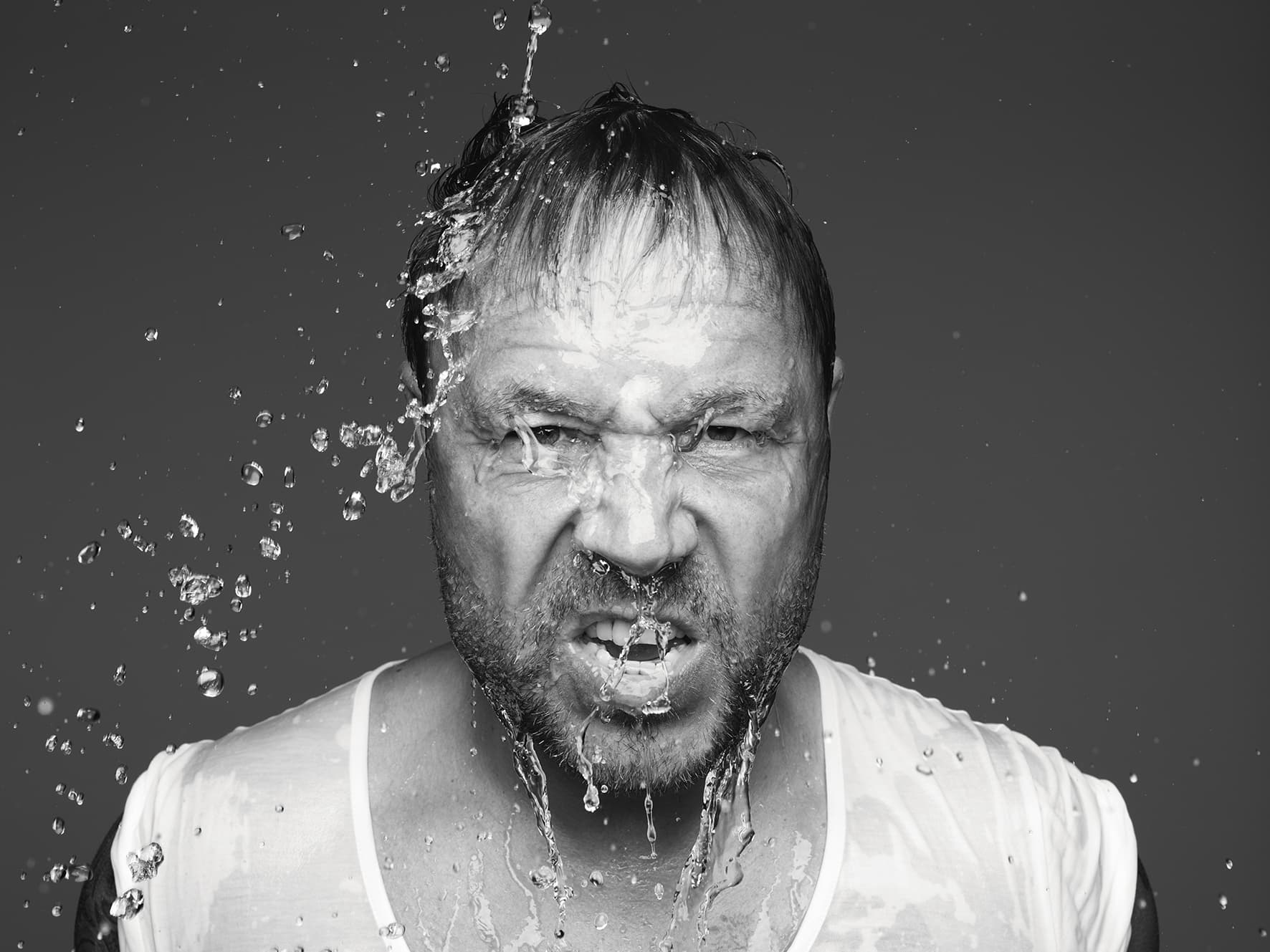Listen Up Issue: Stephen Graham on letting go of his imposter syndrome
Ask Stephen Graham which question he’s most tired of hearing from journalists and he laughs and says it’s the one about being working-class and being typecast. “Obviously it’s a question everyone wants the answer to, but sometimes you go, okay, here we go again.” Born and raised in Kirkby, Merseyside, Graham, 46, is an agile character actor with a diversity of roles behind him. But if there’s one thing he specialises in, it’s playing a man of depth. His lead role as Joseph in Shane Meadows’ The Virtues earlier this year captured one man’s descent into despair with magnetic and heartbreaking empathy. In Martin Scorsese’s new film The Irishman he stars alongside Robert De Niro, Al Pacino and Harvey Keitel as the caporegime of a New Jersey mafia family, a part he said felt akin to winning the Champions League final: “It’s like I scored one from outside the box, do you know what I mean?”

As an actor, you have this incredible ability to convey a man’s resilience, but also their utter vulnerability, sometimes in just one expression. How do you feel about the parts you play? Is that something you look for?
For me it’s about the script, it’s about the story. I try to make the characters as three-dimensional as possible. I try to find some ounce of humanity in there, or some kind of explanation for the way they’re behaving. I like to graft and get it right. Proper preparation prevents poor performance, that’s what I was always taught.
There’s a moment in The Virtues when Joseph is heartbroken about leaving his son and about to begin his unravelling. He’s sitting in the pub and tenderly strokes his pint glass with his thumb – that moment absolutely killed me. Where do gestures like that come from?
I think it’s intuition. When you’re an actor that’s fortunate enough to work with someone like Shane Meadows, you’re able to completely immerse yourself in a character and try to become a different human being. I remember that moment, I remember being in that scene. With that role, I kind of had a duty of care to do it justice and play it with integrity and honesty for people who suffer from addiction, because of what happened with Shane. He’s spoken very openly about what happened when he was a young boy so there’s a kind of truth you have to bring to that performance. You handle it with kid gloves and try to really get it right and be as precise as possible. Did you know that all of those people in that scene, that was their real pub?
Really?
That was the pub where they went every Friday, Saturday, Sunday. That moment was the big moment when Joseph decides to press the panic button and begin that journey into his relapse. I was speaking to a lot of people and that’s the correct terminology in the fellowships and things I looked into. Can I swear in this? Yeah? Okay, it’s called the “fuck it” button. I tried to imagine and put myself in that situation. What it must be like to be that low and to be thinking “fuck it” and to dive back into that illness you’ve been running from. Just going for it and that complete little world of carnage that happens after that decision is made. For me, that role was kind of about a man who was completely and utterly broken, as well as the beauty and intricacies of the way Shane directed it and the way the story was told.

What are your thoughts on young actors in the UK and how they’ve been affected by austerity and cuts and rising tuition fees? You spent your teenage years acting in youth clubs, for example, which have all but disappeared.
I don’t have facts or figures rolled out in front of me but I suppose it is that thing of how you can survive as a young actor. Male, female, whatever – how can you survive while you try and get auditions. I had the support of my mum and dad, which was fantastic, and then I did little bits and bobs and jobs and things like that. But if it wasn’t for my mum and dad, and if it wasn’t being able to get a grant to go to college, it would never have been possible for me. My fear is how many people lose out on those opportunities because they’re not given the opportunity to at least have a go at it, which is very sad. It’s very difficult unless you get paid fresh out of drama school in your third year. And the next minute you fold.
And if you got to drama school you’re probably going to get in lots of debt.
About £50,000 in debt, which is preposterous really.
Do you think that’s had an effect on the number of regional voices we see on television?
Yeah, I think so. Manchester is different because they’ve got Coronation Street, so that’s an accent that you hear quite a lot on the telly. If you do hear a Scouse accent on the telly, it’s not presented in a very nice way. And, you know, I kind of get that stuff – we need someone that speaks nicely to give us our news and our weather and regional will always be regional. I feel it’s not just with acting though, I feel it’s with the directors, and predominantly the writers. I think writers from those areas need to be given the opportunity to tell their stories and stories that they know. I was very lucky when I was younger, I used to watch a lot of Boys from the Blackstuff and Alan Bleasdale was a fantastic writer. And Alan Clarke, I used to love his work. It’s finding those writers with that talent to give people from different backgrounds a voice. I’m really proud to be a part of something like The Virtues because that’s a story of a northern man from a normal working-class background, and an insight into his life. I was very, very proud of that piece and that’s what Shane does greatly.

You work across film and television – would you say we’re in a golden age of TV at the moment, and is this perhaps to the detriment of British film?
To make an independent film these days is really difficult. Firstly, it’s difficult to raise the money for your film and secondly, you’re not really going to get anywhere against the Hulk, Thor, Iron Man and all of that. You’ve got no chance at all. Now the medium is more about trying to make a short television drama or a little mini-series. It’s a shame because film-making in this country is our old bread and butter. It’s what we’re brilliant at but it’s a difficult industry to get into right now, to be able to make a small British film.

When you refer to watching shows like Boys from the Blackstuff, do you realise that your work is also viewed in this way by young actors and writers today?
I still find that concept very difficult to grasp. You’re bang on, but I still can’t see that. I suffered a lot with imposter syndrome for a long time, that working-class mentality of I don’t deserve to be here, someone’s gonna kick me out of here. But that seems to have dissipated over the past two and a half years, if I’m honest.
Two and a half years? Why do you think that is?
I don’t know, it just has. A little bit of a mental change in that kind of thinking. That does not come with ego in any way, shape or form. I just kind of understand that I am closer to 50 now than I am to 40 – that’s what I said to my daughter Grace the other day. And I suppose that time of maturity has dissipated that way of thinking. But I still don’t think of myself as the same as when I used to watch people on the telly and think, wow, I want to do that, they’re great. I don’t think I can quite grasp that in my head. If you do run away with that, that’s when ego would take hold. It’s not embarrassment because I am very proud of what I’ve achieved. But there’s that little bit of going alright and it is wonderful. It is lovely if I can then inspire anybody to want to become an actor.
Stephan Graham is one of our cover stars for HUNGER issue 17, Listen Up, available here.

